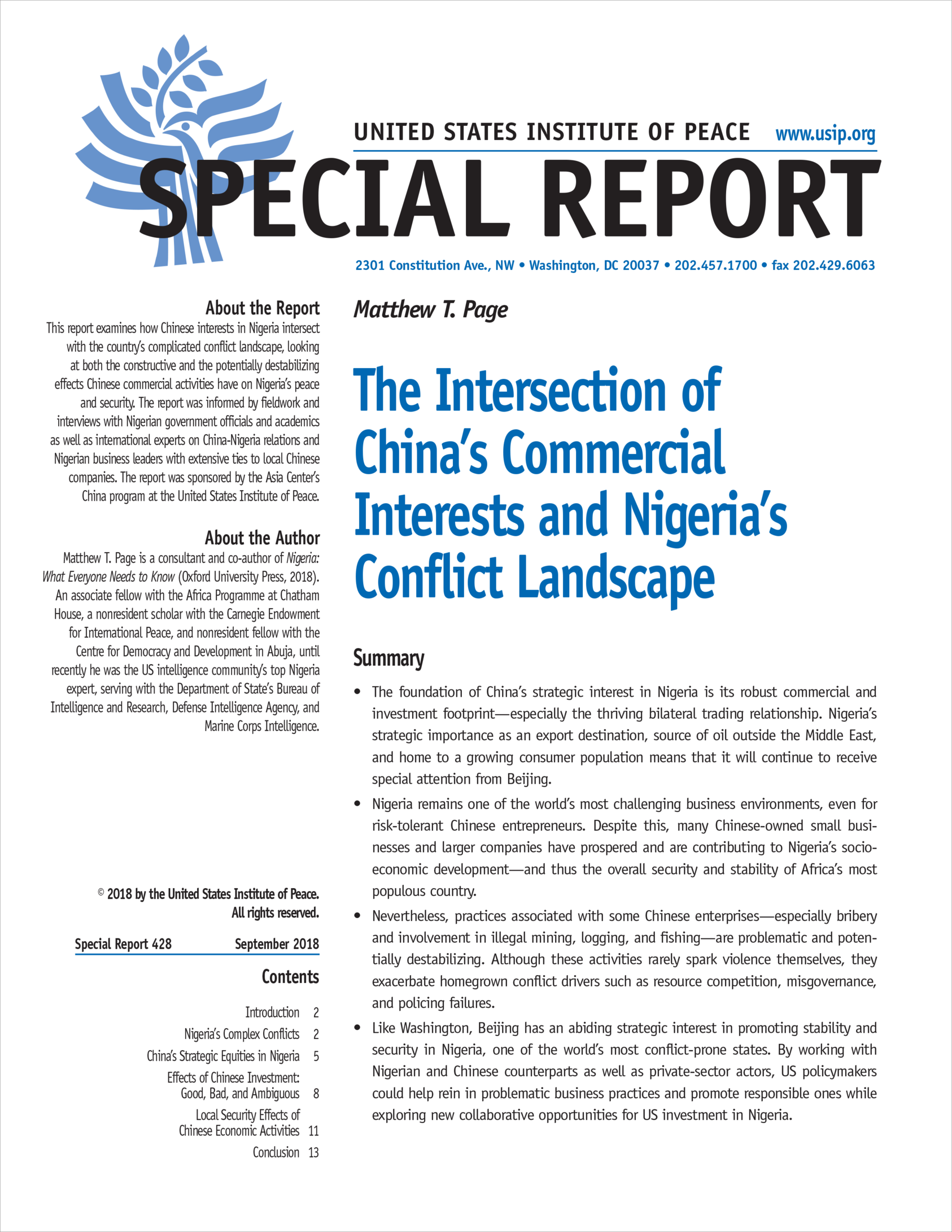Like Washington, Beijing has an abiding strategic interest in promoting stability and security in Nigeria—the largest economy in Africa, a major oil and gas producer, and on track to become the world’s third most populous country by 2050. Yet from the Boko Haram insurgency in its northeast to farmer-herder clashes in its Middle Belt region and militancy in the oil-rich Niger Delta, insecurity undermines Nigeria’s socioeconomic development. This Special Report examines how China’s economic interests intersect with Nigeria’s complicated conflict landscape.
Summary
- The foundation of China’s strategic interest in Nigeria is its robust commercial and investment footprint—especially the thriving bilateral trading relationship. Nigeria’s strategic importance as an export destination, source of oil outside the Middle East, and home to a growing consumer population means that it will continue to receive special attention from Beijing.
- Nigeria remains one of the world’s most challenging business environments, even for risk-tolerant Chinese entrepreneurs. Despite this, many Chinese-owned small businesses and larger companies have prospered and are contributing to Nigeria’s socioeconomic development—and thus the overall security and stability of Africa’s most populous country.
- Nevertheless, practices associated with some Chinese enterprises—especially bribery and involvement in illegal mining, logging, and fishing—are problematic and potentially destabilizing. Although these activities rarely spark violence themselves, they exacerbate homegrown conflict drivers such as resource competition, misgovernance, and policing failures.
- Like Washington, Beijing has an abiding strategic interest in promoting stability and security in Nigeria, one of the world’s most conflict-prone states. By working with Nigerian and Chinese counterparts as well as private-sector actors, U.S. policymakers could help rein in problematic business practices and promote responsible ones while exploring new collaborative opportunities for U.S. investment in Nigeria.
About the Report
This report examines how Chinese interests in Nigeria intersect with the country’s complicated conflict landscape, looking at both the constructive and the potentially destabilizing effects Chinese commercial activities have on Nigeria’s peace and security. The report was informed by fieldwork and interviews with Nigerian government officials and academics as well as international experts on China-Nigeria relations and Nigerian business leaders with extensive ties to local Chinese companies. The report was sponsored by the Asia Center’s China program at the United States Institute of Peace.
About the Author
Matthew T. Page is a consultant and co-author of Nigeria: What Everyone Needs to Know (Oxford University Press, 2018). An associate fellow with the Africa Programme at Chatham House, a nonresident scholar with the Carnegie Endowment for International Peace, and nonresident fellow with the Centre for Democracy and Development in Abuja, until recently he was the US intelligence community’s top Nigeria expert, serving with the Department of State’s Bureau of Intelligence and Research, Defense Intelligence Agency, and Marine Corps Intelligence.
